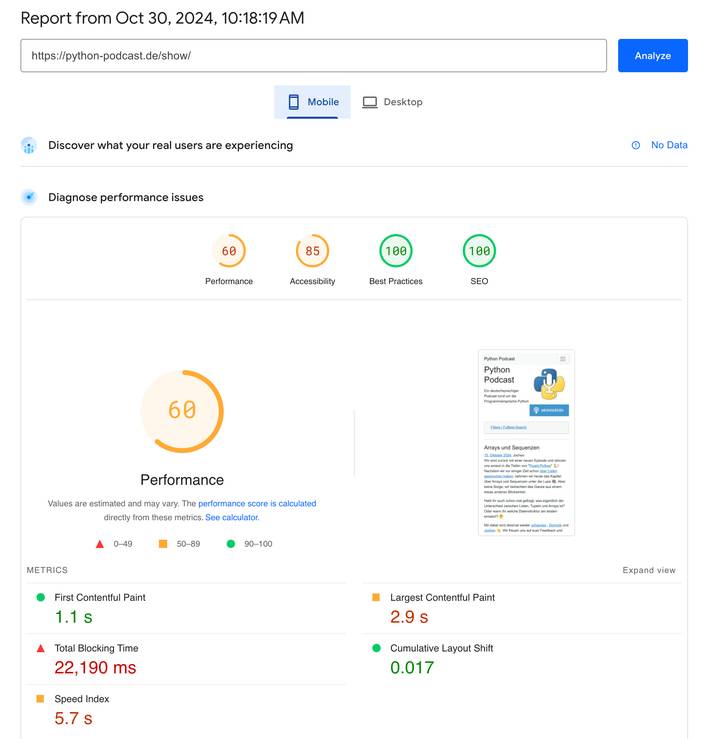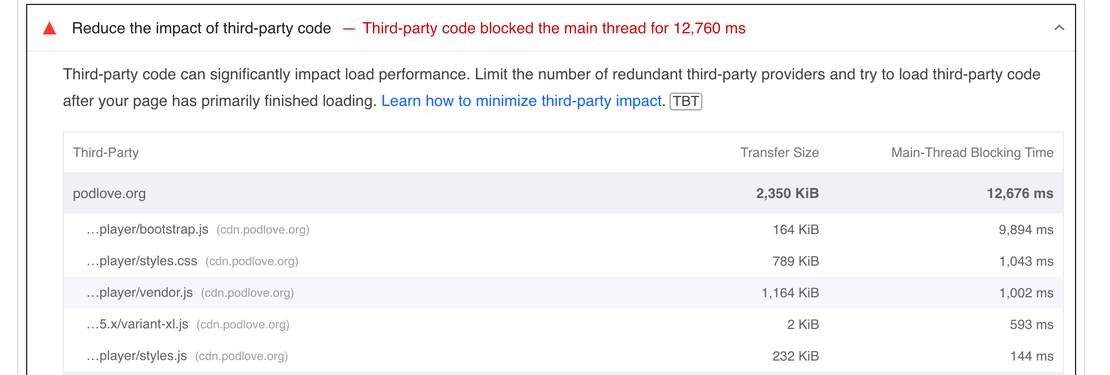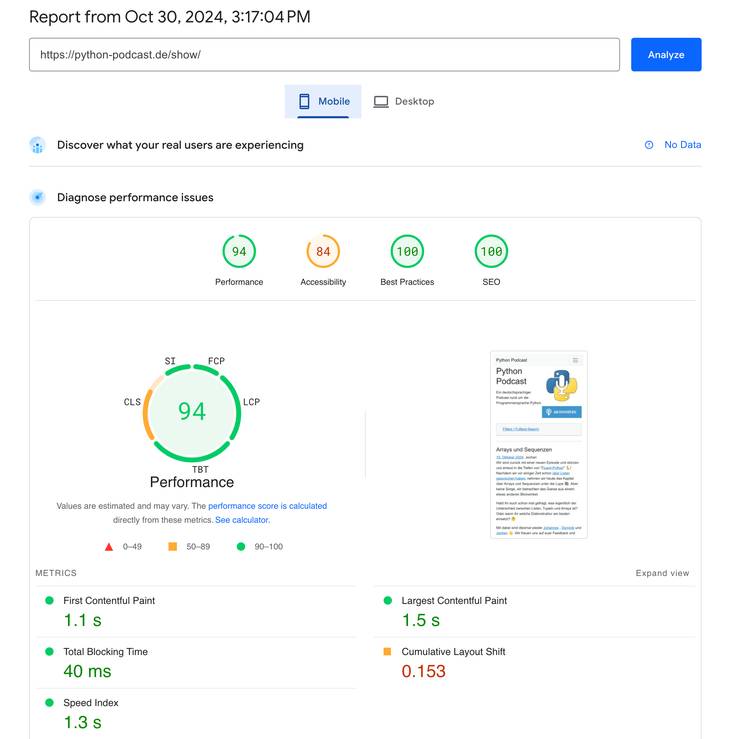// podlove-player.ts
class PodlovePlayerElement extends HTMLElement {
constructor() {
super();
this.observer = null;
this.shadow = this.attachShadow({ mode: 'open' });
}
connectedCallback() {
this.renderPlaceholder();
if (document.readyState === 'complete') {
// The page is already fully loaded
this.observeElement();
} else {
// Wait for the 'load' event before initializing
window.addEventListener('load', () => {
this.observeElement();
}, { once: true });
}
}
disconnectedCallback() {
if (this.observer) {
this.observer.disconnect();
}
}
renderPlaceholder() {
// Reserve space to prevent layout shifts
const container = document.createElement('div');
container.classList.add('podlove-player-container');
// Apply styles
const style = document.createElement('style');
style.textContent = `
.podlove-player-container {
width: 100%;
max-width: 936px;
height: 300px;
margin: 0 auto;
}
@media (max-width: 768px) {
.podlove-player-container {
max-width: 366px;
height: 500px;
}
}
.podlove-player-container iframe {
width: 100%;
height: 100%;
border: none;
}
`;
this.shadow.appendChild(style);
this.shadow.appendChild(container);
}
observeElement() {
this.observer = new IntersectionObserver((entries, observer) => {
entries.forEach(entry => {
if (entry.isIntersecting) {
this.initializePlayer();
observer.unobserve(this);
}
});
});
this.observer.observe(this);
}
initializePlayer() {
const container = this.shadow.querySelector('.podlove-player-container');
const audioId = this.getAttribute('id') || `podlove-player-${Date.now()}`;
const url = this.getAttribute('data-url');
const configUrl = this.getAttribute('data-config') || '/api/audios/player_config/';
const podloveTemplate = this.getAttribute('data-template');
let embedUrl = this.getAttribute('data-embed') || 'https://cdn.podlove.org/web-player/5.x/embed.js';
// If host ist localhost use local embed url
const { protocol, hostname, port } = window.location;
console.log("data template: ", podloveTemplate);
const playerDiv = document.createElement('div');
playerDiv.id = audioId;
// set the template attribute if it is set (needed for pp theme)
if (podloveTemplate !== null) {
playerDiv.setAttribute('data-template', podloveTemplate);
}
container.appendChild(playerDiv);
if (typeof podlovePlayer === 'function') {
podlovePlayer(playerDiv, url, configUrl);
} else {
// If in dev mode on localhost and embedUrl starts with a slash, use the local embedUrl
// otherwise the vite url 5173 will be used -> which will not work
if (hostname === 'localhost' && embedUrl.startsWith("/")) {
embedUrl = `http://localhost:${port}${embedUrl}`;
}
// Dynamically load the Podlove player script
import(embedUrl).then(() => {
podlovePlayer(playerDiv, url, configUrl);
});
}
}
}
console.log("Registering podlove-player!");
customElements.define('podlove-player', PodlovePlayerElement);



